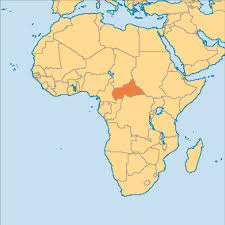The Muslims of the Central African Republic Face a Deadly Purge
< < Go Back
This fragile African nation is witnessing unprecedented sectarian strife. Here’s why.
The anti-balaka have outgrown their name. These militias in the Central African Republic, once united under a moniker meaning “anti-machete” in the local Sango language, are exacting their own vicious revenge upon the mainly Muslim rebels who overthrew the government last March and waged months of terror against the Christian population. They are now accused of atrocities far worse than what first prompted them to take up arms.
An Amnesty International report on Feb. 12 said attacks on Muslims in January by anti-balaka militias, made up of Christians and animists, had amounted to “ethnic cleansing.” Fatou Bensouda, chief prosecutor at the International Criminal Court at The Hague, has already opened a preliminary investigation into crimes against humanity, saying some “victims appeared to have been deliberately targeted on religious grounds.” A top U.N. official issued similar warnings during a recent visit to the ravaged capital, Bangui, telling reporters: “There is an ethnic-religious cleansing taking place. It must be stopped.”
The campaign of looting and murder in recent weeks has led to an alarming demographic crisis in the Central African Republic. About 1 million of its 4.6 million people have been displaced and at least 2,000 have been killed. Muslims account for 15 percent of the population, or about 690,000 people; Médecins Sans Frontières said in a conference call with reporters on Feb. 18 that at least 80,000 had already left.
Entire neighborhoods in Bangui and towns in the northwest have emptied as a mass exodus pours into neighboring countries Cameroon and Chad. Aid groups fear the fleeing of Muslim traders and cattle herders, who are crucial to the country’s food production and distribution, may spark a famine.
How political payback turned into a sectarian purge isn’t entirely understood. Experts gesture to spillover from conflicts throughout the region as well as the legacy of decades of poor governance in the former French colony. But the country has no such precedent of religious strife.
a main cause was the systemic marginalization of Muslims that ramped up after former President François Bozizé won power in 2003. Muslims, many of whom live in the isolated and underdeveloped northeast, were largely neglected and treated like “foreigners.”
This dispossession eventually led to Séléka’s formation. The rebels, supported by Chadian and Sudanese fighters, overran the state’s decayed army in late 2012 and quickly gained control of much of the country. Bozizé appointed a prime minister from the opposition and signed several peace deals with Séléka in Libreville, Gabon, the following January. But when he failed to honor the agreements, Séléka toppled his government and installed Michel Djotodia as the country’s first Muslim president.
The rebels favored Muslim civilians and bands of fighters terrorized Christian communities; mistrust grew as Muslims were viewed as complicit in Séléka’s rampages. Djotodia dissolved Séléka in September but the rebels continued their attacks, prompting the formation of the anti-balaka squads and an uptick in tit-for-tat violence. In early December, two days of carnage left hundreds dead.
More From TIME Magazine (subscription required):




